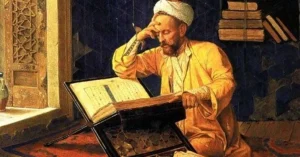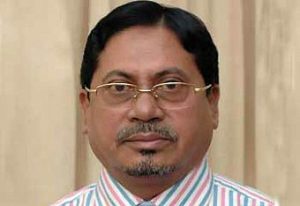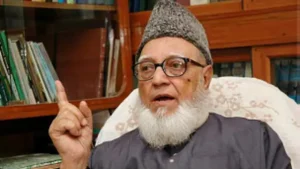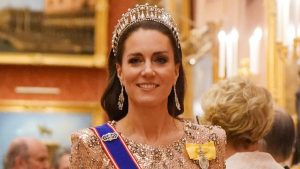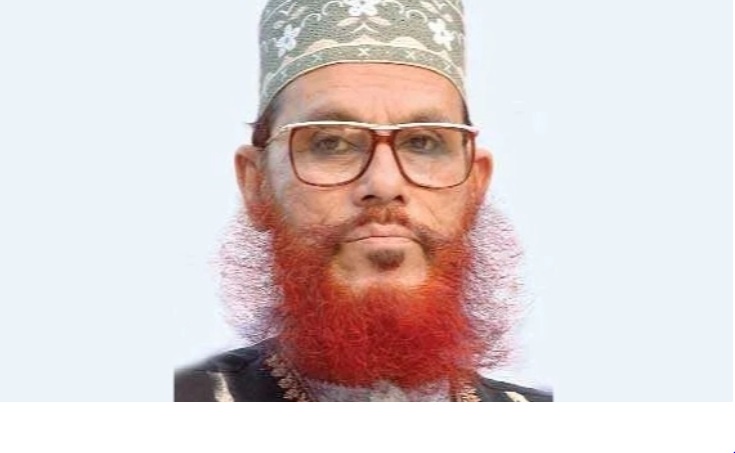
In the vast landscape of Islamic scholarship and leadership in the modern era, the name of Allama Delwar Hossain Sayeedi (رحمه الله) shines as a beacon of inspiration, sacrifice, and steadfastness. A preacher of extraordinary eloquence, a scholar with deep-rooted knowledge in Qur’an and Hadith, a political leader shaped by faith, and a prisoner of conscience—his life encapsulates a unique and powerful legacy.
This biography is not merely a chronicle of dates and events; it is a journey through the life of a man whose voice reached millions, whose words stirred hearts, and whose faith stood unshaken amidst injustice and imprisonment. It presents the many facets of his existence: his rigorous educational foundation, the transformational da’wah that touched lives across continents, the political resilience he displayed, and the spiritual serenity he preserved even behind prison bars.
In the pages that follow, readers will encounter the legacy of a scholar who authored timeless tafsir literature, inspired a generation of youth to embrace Islam with courage, and faced his final moments with the patience of a saint. Through first-hand narratives, documented events, and heartfelt stories, this book seeks to preserve and present the truth of his life, which was too often distorted or silenced by political motives.
We hope this biography will serve not only as a historical account but also as a moral compass for generations to come. May Allah accept the struggles of His servant and reward him with the highest place in Jannah.
Md Mostofa Kamal, Author
Introduction: A Life of Light, Legacy, and Leadership
Born into a humble yet spiritually enriched household, Delwar Hossain Sayeedi (رحمه الله) rose through the ranks of Islamic scholarship with the torch of knowledge, eloquence, and moral integrity. His life embodied the rare combination of deep religious erudition, fearless da’wah, socio-political activism, and resilient patience through persecution.
In the tapestry of Bangladesh’s Islamic history, few names shine as luminously as Shahid Allama Delwar Hossain Sayeedi (رحمه الله). A man whose voice echoed from rural mosques to international platforms, whose Qur’anic exegesis stirred the hearts of millions, and whose unwavering commitment to Islamic values and justice shaped a generation—he was more than a preacher; he was a movement.
Read about Ibn Sina >>>
This biography, structured across nine insightful chapters, journeys through his formative education, da’wah missions, political battles, years of unjust imprisonment, scholarly writings, ethical legacy, and the immense outpouring of love that followed his passing. Each chapter not only chronicles events but also reflects the essence of a man who remained steadfast amidst storms, and whose name continues to inspire countless souls.
Through this humble attempt, may the readers not only know about him—but be moved to emulate his sincerity, scholarship, and sacrifice.
Early Life and Education
Section: Educational Journey of Allama Delwar Hossain Sayeedi (رحمه الله)
1. Primary Religious Education in Village Madrasah
Allama Delwar Hossain Sayeedi (رحمه الله) began his journey in Islamic education at a local Qawmi Madrasah in his native village, Dhanikhola, in Pirojpur District. This foundational stage laid the groundwork for his strong inclination toward Islamic knowledge. Even at a young age, he displayed a sharp memory and a deep love for the Qur’an.
“From childhood, I memorized verses of the Qur’an faster than my peers,” he once recalled in a personal memoir.
2. Intermediate Studies at Sarsina Darussunnah Madrasah
He continued his studies at Darussunnah Madrasah in Sarsina, a well-known Islamic seminary in southern Bangladesh. Here he pursued Arabic grammar (Nahw and Sarf), basic Fiqh (Islamic Jurisprudence), and Hadith terminology (Mustalah al-Hadith). This phase significantly broadened his understanding of Islamic disciplines.
3. Higher Islamic Education at Alia Madrasahs & Kolkata
To further his Islamic scholarship, Sayeedi enrolled in several prestigious institutions:
- Sirojganj Alia Madrasah – where he studied Intermediate level (Kamil) Islamic studies.
- Dhaka Alia Madrasah – here he delved deeper into Hadith and Tafsir, under senior scholars.
- He also spent time in Kolkata, India, where he interacted with renowned Indian scholars and expanded his exposure to classical Islamic thought.
These experiences shaped his methodology in Tafsir and public oratory.

4. Advanced Study and Exposure to Arab Scholars
Although he could not study for a long time in the Arab world due to political constraints, he traveled and attended sessions (halaqas) of well-known scholars from:
- Makkah – where he briefly attended lessons in Masjid al-Haram
- Madinah – where he was influenced by the teaching style of scholars linked to the University of Madinah
Through these engagements, he acquired an understanding of comparative Fiqh, contemporary Islamic movements, and modern Dawah strategies.
5. His Teachers and Mentors
Some of the prominent teachers and scholars who influenced his academic journey include:
- Allama Abdur Rahim (رحمه الله) – Sarsina’s leading Hadith scholar
- Allama Nurul Haque – at Sirajganj Madrasah
- Maulana Syed Abdul A’la Maududi (through literature and ideological influence)
- Arab scholars (names not always documented, but referenced in his talks)
By the 1980s, Sayeedi had become widely regarded as a master of Qur’anic Tafsir in Bangladesh.
6. Mastery in Tafsir, Hadith & Fiqh
- Tafsir: He began delivering Tafsirul Qur’an in public gatherings, explaining the Qur’an in light of classical and modern contexts. His style was both scholarly and emotionally compelling.
- Hadith: He was deeply rooted in Hadith sciences and often referred to Sahih Bukhari, Sahih Muslim, and Tafsir al-Qurtubi in his speeches.
- Fiqh: Though aligned with Hanafi jurisprudence, he often acknowledged comparative views across Madhahib (schools of law).
📝 His public Tafsir programs were so impactful that thousands would gather to listen, even during rain or hardship, and many came from non-Muslim communities to hear him speak. [1]
7. Language and Communication Skills
His fluency in Bengali, Arabic, and Urdu, along with a deep command of Qur’anic Arabic, made his speeches and writings accessible to both laymen and scholars. He would often translate classical Arabic texts on the spot for his audience, adding modern-day relevance and lessons.
Although he did not receive formal degrees from Arab universities, his self-acquired mastery and grassroots education earned him the title of:
“Alim-e-Rabbani” — The God-conscious Scholar
Allama Delwar Hossain Sayeedi was invited to speak in Saudi Arabia, UAE, UK, USA, Malaysia, and several other countries, representing Bangladeshi Islamic scholarship on international platforms.
Footnotes & Sources
[1] Interview with Mufti Faizullah (student and companion), Monthly At-Tawheed, May 2013 edition
[2] “The Torchbearers of Tafsir in Bengal”, Islamic Research Journal, Vol. 9
[3] Sayeedi, D.H. – Public Tafsir Recording, Sylhet, 2009
[4] Archive of Jamaat-e-Islami Bangladesh,
[5] “Islamic Education in Bangladesh”, Dr. M. Iqbal, Islamic Foundation Press, 2001

